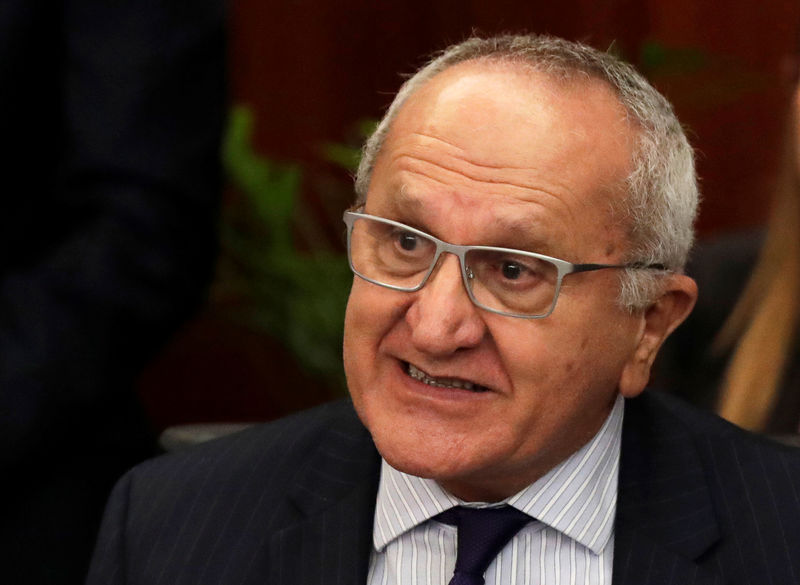MEXICO CITY (Reuters) - Mexico sees a push to close a dispute resolution loophole in the USMCA trade deal as a way to protect its interests as well as helping satisfy demands by U.S. Democrats that the deal contain stricter labor measures, a senior official said on Thursday.
Reuters reported last week that Mexico was working closely with U.S. Trade Representative Robert Lighthizer to close a loophole in the new United States-Mexico-Canada trade deal that allows a country to refuse to form a dispute panel.
Making that fix would ensure that Canada or the United States could form a dispute panel for alleged violations of labor or environmental rules contained in the trade deal and also give Mexico guarantees it could form such a panel for issues affecting its own interests, said Jesus Seade, deputy foreign minister for North America.
"Of course, this could not be only for the areas where the demand might eventually come from the U.S. or issues against Mexico, which is labor and environment. It would have to be something across the board," he said in an interview with Reuters.
In May, Democratic U.S. Senator Ron Wyden wrote to Lighthizer arguing that by enabling parties to opt out of the dispute panels, USMCA repeated a weakness in the trade deal's predecessor, NAFTA, that made it harder to enforce rules.
The United States, Mexico and Canada signed the USMCA last November, to replace the North American Free Trade Agreement that governs more than $1.2 trillion of mutual trade. But implementation is subject to ratification by lawmakers in all three countries.
Democrats in the U.S. Congress, largely in the Democratic-controlled House of Representatives, have threatened to stall ratification until their concerns are met.
The new trade deal had come at the behest of Republican U.S. President Donald Trump, who blamed NAFTA for millions of job losses in the United States as companies moved south to employ cheaper Mexican labor.

Seade said he was still discussing with Lighthizer how best to address the issue but that he believed the U.S. official agreed that whatever solution they found would have to be applicable across the board and not only to labor and environmental issues.